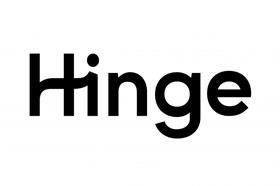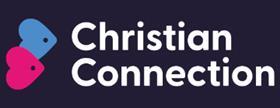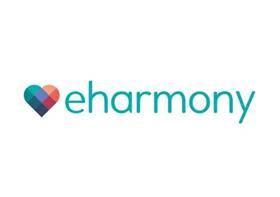How can Christians approach online dating while staying true to their faith and values? Deborah Adelodun explores the pros and cons of today’s most popular dating apps, offering insights into how they can support meaningful, faith-aligned connections

Would you entrust an algorithm to find your life partner?
Well, in the UK, a group of wedding experts found that 29 per cent of married couples met through some form of online dating. While introductions through family, friends, and chance encounters are still ways of finding your person, if you’re looking to take steps toward meeting someone, dating apps are a powerful tool worth considering.
Hinge

This is the app built around the idea of being designed to be deleted. Hinge is one of the most popular dating apps right now, and rather than endless swiping, it uses prompts to help start conversations.
Faith-based: No
Who is it for: Young professionals who are looking for a serious, long-term relationship.
Pros:
● Swiping feels more intentional, leading to better connections.
● More advanced filters including age, religion and politics.
Cons:
● Subscriptions can get pretty pricey if you want the full experience.
What they are best for: Creating intentional, lasting connections. Hinge is ideal for users who want more depth and substance than typical swipe-based apps.
Bumble

Bumble is the dating app where women make the first move, putting female empowerment at the forefront. Like Hinge, it encourages more intentional relationships.
Faith-based: No
Who is it for: Bumble suits women looking for greater control and safety in the dating space, as well as men open to a more modern, equitable approach.
Pros:
● Women initiate contact, creating a more balanced and empowering experience.
● Offensive language is filtered, making interactions safer.
Cons:
● Conversations expire after 24 hours if not initiated, which can be frustrating for slower responders.
What they are best for: Best for beginners. It is also particularly appealing to users seeking meaningful connections.
SALT

Salt is a faith-first dating app made for the purpose of connecting Christian singles.
Faith-based: Yes
Who is it for: SALT is for Christians who value faith at the centre of their relationships and are hoping to find people with similar beliefs.
Pros:
● Hosts in-person socials and events to encourage real-life connections.
● Unique features like virtual speed dating add variety to the experience.
Cons:
● Extensive sign-up process with detailed writing and verification.
● Limited match pool in rural areas due to location-based matching.
What they are best for: Ideal for practising Christians looking for committed relationships who intend on meeting in person and taking conversations offline.
Christian connection

Christian Connection is an award-winning platform that has been connecting Christians for over 20 years.
Faith-based: Yes
Who is it for: Christian singles of all ages looking for faith-driven relationships.
Pros:
● Wide age range, welcoming users across different life stages.
Cons:
● Free users can browse but have restricted messaging capabilities.
What they are best for: Connecting individuals who share values.
Join Christian connection here
eHarmony

eHarmony is a dating platform known for its compatibility matching.
Who is it for: Both young and mature people who are looking for a serious, lasting relationship.
Faith-based: No
Pros:
● Strong over-60s community and offers support tailored to mature singles.
● Compatibility-driven matching.
Cons:
● Free members have very restricted access to communication and matching tools.
What they are best for: eharmony excels at helping people avoid dating burnout by focusing on quality over quantity.
How to choose the best dating apps for you
Downloading a dating app is easy, but finding the right match is hard. It’s worth choosing an app that matches your relationship goals.
Start by asking yourself: What kind of relationship am I looking for? If you’re seeking a long-term partner, it’s worth using a platform built for serious connections. Apps like eHarmony are great choices, especially if you’re open to paying for features that improve your chances.
If you’re just starting or prefer a more relaxed approach, Hinge and Bumble are solid options. There’s an app out there for everyone.
It’s important to remember that dating apps are tools, not guarantees of love. As 1 Corinthians 13:4-7 reminds us, love is patient and kind, and every story unfolds in its own time and its own way.



































No comments yet